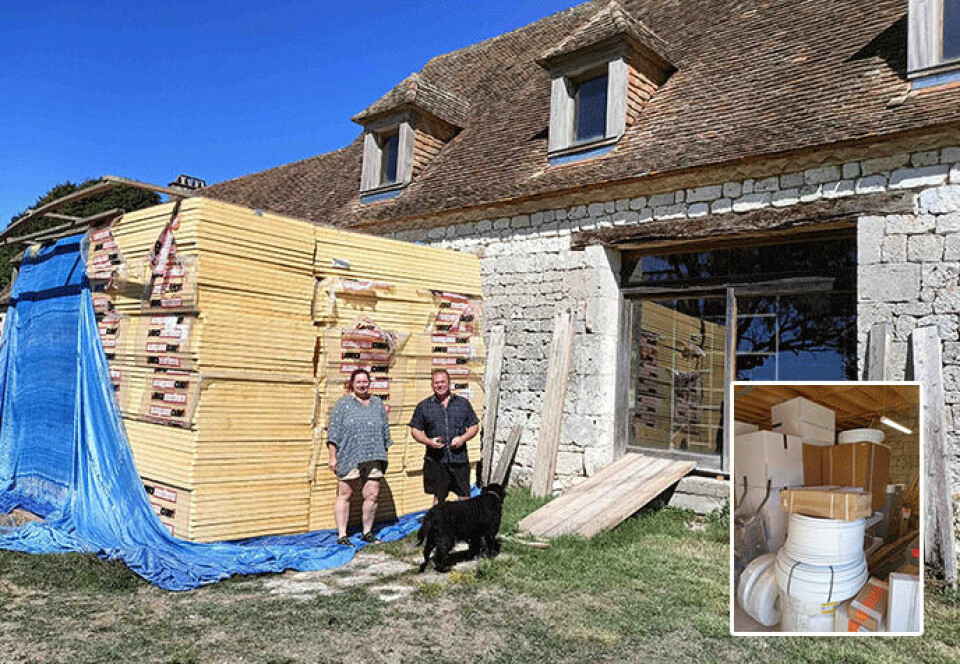-
How to define your style and make a French property a home
'There is always a balance between the inhabitant and the provenance of the building'
-
‘Our €8,000 barge in France gives us an off-grid retirement’
A British couple talk through their DIY conversion of an old working boat into a cosy floating home on the Canal du Midi
-
France plans crackdown on fraud around obligatory energy ratings for homes
All homes being sold or let need an up-to-date DPE
Case study: Upgrading an old stone barn conversion in France
Couple in south-west tell of their challenge to make insulation and heating improvements to the massive building so it conforms to modern standards

Dordogne residents Rob Delaney and Louise Batt – fresh from completing a newbuild project in Northern Ireland – faced a big challenge when they bought a large stone barn to convert into a 450m2 home and 229m2 gîte four years ago.
They bought it with a vièrge (blank) DPE rating and realised one of their biggest spends would be on heating and insulation to conform to modern standards.
They spent up to €65,000 on insulation and central and water heating systems intended to bring their DPE rating up to at least C, and maybe B, when completed.
Associated article: €1,000 energy audit to be needed for sales of millions of French homes
“One-and-a-half lorryloads of Cellatex panels cost us €16,000 and what you see here [see photo] is two-thirds of this. Half as much again has already been installed,” said Mr Delaney, 58, a former waste disposal company owner.
The 5cm-thick panels are being used in three layers under the roof and two on the floor and ceilings.
The 285m2 ground floor will have underfloor heating powered by a geothermal system and water will be heated with an air-source heat pump. Both are reversible to produce cooling in summer. To maximise energy efficiency while retaining the aesthetic appeal of stone walls, Ms Batt, 53, decided to insulate them up to dado rail height behind MDF panelling, leaving the wall above exposed.
She said: “We like this look and it means we have a barrier against cold rising from ground level.
Compromise between keeping old-world charm and reducing carbon footprint
“It is a workable compromise between keeping old-world charm and reducing our carbon footprint as much as possible.”
The couple estimate their annual electricity bill for running both central heating and hot water will be €1,500 per year. By installing photovoltaic panels, they hope to almost eliminate this cost.
“It has involved a lot of expense,” Ms Batt said. “But this is where we’ll live for the rest of our lives and we want the job done properly with the best we can afford.”
The couple are doing the work themselves with guidance from geothermal system provider Maas Renewables.
“Using an Irish supplier has been great,” said Mr Delaney. “They speak English and being in the EU there is no import duty.”
Related Links
Homeowners applying for French renovation grants will need consultant
Heating in flats, solar panels, price rises, French government Q&A
Cool roofing trend grows in popularity in France
























